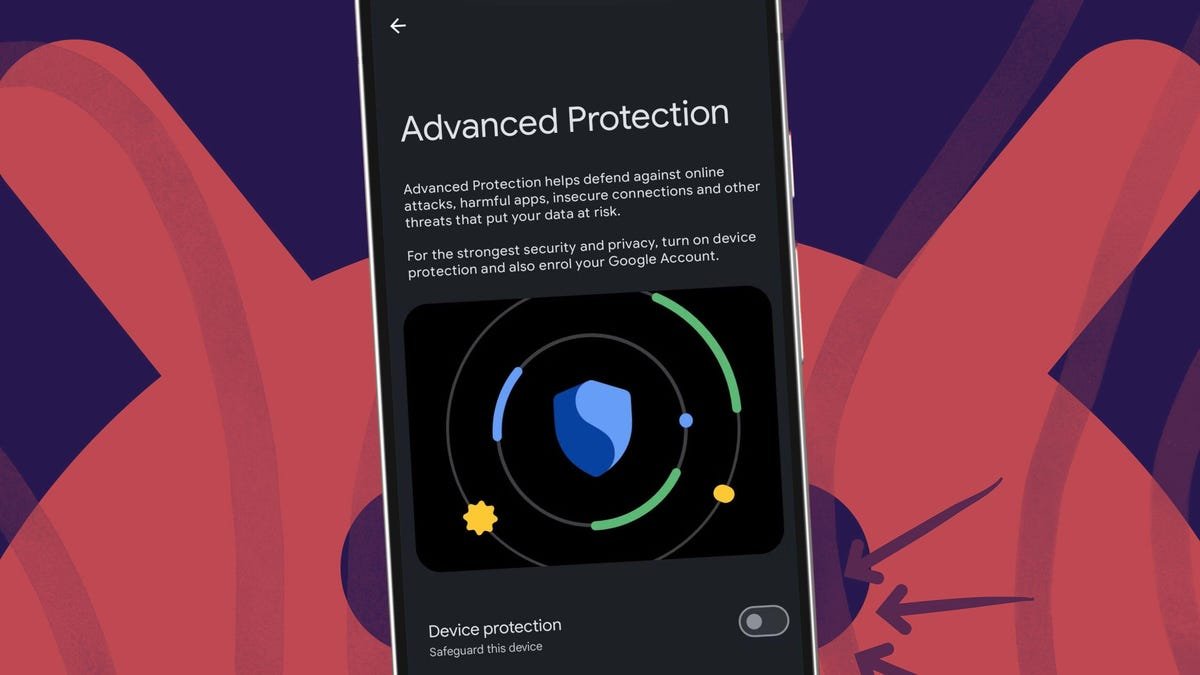What is Advanced Protection on Android?
Advanced Protection in Android 16 is a robust security feature that compiles various security settings into one convenient toggle. When activated, it locks specific features to prevent individual modifications and enhances security across six categories. The result? A more secure and user-friendly experience for all Android users.
Also: I unlocked hidden menus on my iPhone and Android with 14 secret codes
Here’s a breakdown of what Advanced Protection does on your device, as outlined by Google:
Apps
One significant aspect of Advanced Protection is the restrictions it places on app installations, which keeps your device safer from potential threats.
Device Safety
It also enhances the overall safety of your device, ensuring that you are less vulnerable to malware and other security breaches.
Messages
Advanced Protection offers added layers to ensure that your messaging apps remain secure, helping to safeguard your private communications.
Network
- 2G Network Protection: This feature prevents your phone from connecting to unsecured 2G networks on supported devices. This makes it harder for hackers to access your data through insecure channels.
Phone
Advanced Protection extends to phone functionalities to keep your communications private and secure.
Web
- Safe Browsing: This feature actively blocks phishing and malicious websites, adding an extra layer of protection when you surf the web.
- Chrome HTTPS Enforcement: It forces connections to use HTTPS whenever possible, safeguarding your data in transit.
- JavaScript Protections: This feature disables Chrome’s JavaScript optimizer to minimize the risks associated with online threats.
Why Isn’t Advanced Protection Enabled by Default?
Despite the enhanced security it offers, Advanced Protection isn’t enabled by default. Certain features, like blocking sideloaded apps or automatically screening calls, could potentially create problems for average users. Therefore, it remains an optional feature, allowing users the flexibility to choose their own security level.
Does Advanced Protection Block Sideloaded Apps?
Yes, indeed. When Advanced Protection is enabled, it blocks installations from unknown sources, meaning you can’t sideload apps that aren’t available on the Play Store. This restriction is a key security measure to help reduce exposure to possible malware.
Will Advanced Protection Slow Down My Phone or Make It Harder to Use?
Generally, you won’t notice significant changes in performance. The primary trade-offs involve losing the ability to sideload apps and experiencing some occasional challenges with spam and call screening. Overall, the security benefits often outweigh these minor inconveniences.
What Exactly Happens If My Phone Is Stolen?
If your device is stolen, Advanced Protection steps in with features tailored to enhance recovery chances. It includes:
- Theft Detection Lock: This automatically locks your phone if it’s grabbed from your hand or moved suddenly.
- Offline Device Lock: If your device loses connection, it locks itself, increasing the chances of securing your data.
- Inactivity Reboot: If your phone remains locked for 72 hours, it automatically reboots to prevent unauthorized access.
Do I Need Google Account Advanced Protection?
In addition to device protection, Google Account Advanced Protection provides an extra layer of security that focuses on your online account (including Gmail, Drive, Docs, and more).
This opt-in program necessitates stronger sign-in methods such as passkeys or physical security keys and limits third-party access to your data. Unlike Android’s device-specific Advanced Protection, this account-level protection targets your cloud-based information. For anyone at a heightened risk, engaging both security measures is highly advisable.
Also: The best secure browsers for privacy in 2025: Expert tested





